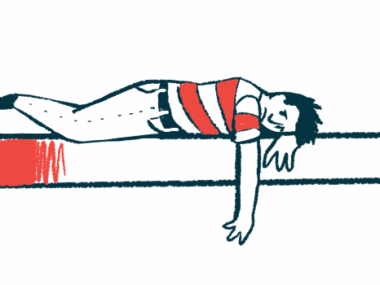Gut bacteria changes linked to anxiety and depression in Cushing’s
Mice grow anxious when given bacteria from Cushing’s patients
Written by |

Changes in gut bacteria may underlie the development of mental health problems in people with Cushing’s disease, a study found.
The study, “The gut microbiome in patients with Cushing’s disease affects depression- and anxiety-like behavior in mice,” was published in Microbiome.
Cushing’s disease is characterized by elevated levels of the stress hormone cortisol due to a tumor that arises in the brain’s pituitary gland. Mental health problems like anxiety and depression are commonly seen in people with Cushing’s, but their underlying biological causes are poorly understood.
The human digestive system is home to trillions of bacteria and other microscopic organisms, collectively known as the gut microbiome. These microbes have profound effects on health that are only beginning to be investigated, with some early research suggesting that the gut microbiome becomes dysregulated in people with Cushing’s disease.
Researchers in China set out to explore the possibility that changes in gut bacteria might contribute to mental health issues in Cushing’s disease. They collected fecal samples from 21 Cushing’s patients, as well as an equal number of patients without the disease who were similar in terms of sex and age. Analyses of the bacteria found in these samples confirmed that there were significant differences in bacterial composition in Cushing’s patients.
The researchers took bacteria from these fecal samples and transplanted them into the digestive tracts of mice. They then assessed the animals for signs of anxiety and depression, using behavioral tests that measured, for instance, how long the animals were willing to stay in the middle of an open field. Mice that are stressed and anxious will generally try to hide.
Gut bacteria and anxiety, depression
Results showed that mice receiving gut bacteria from Cushing’s patients exhibited signs of substantially more severe anxiety and depression, including spending less time in the center of an open field and being inactive for longer periods of time while being suspended by the tail or forced to swim. Researchers noted, however, that there wasn’t a clear connection between measures of mental health in mice and in the patients from whom the samples had been collected.
“The results of our study provide compelling evidence that gut microbes obtained from patients with [Cushing’s] can induce depressive and anxious behaviors in mice,” the researchers wrote.
While the fecal transplant led to changes in the behavior of mice, it didn’t affect cortisol levels. In subsequent experiments, researchers showed that increasing cortisol levels led to both behavioral changes consistent with higher levels of depression and anxiety and microbiome dysregulation in the animals. These findings imply that cortisol may lead to mental health problems through its effects on the microbiome.
“From these findings, we hypothesize that in patients with [Cushing’s disease], the elevation in hormone levels acts as the initiating factor, driving alterations in the composition of the gut microbiome,” the researchers wrote. “This change in the gut microbiome, in turn, emerges as a significant factor contributing to the manifestation of depression and anxiety in these patients. This may answer the question of why some patients continue to suffer from depression and anxiety even after their hormone levels have eased.”
Analyses of blood samples taken from mice also showed that those given bacteria from Cushing’s patients had significantly lower levels of a metabolite called 2–14,15-EG. In further tests, the researchers found that giving mice supplements of this molecule reduced signs of anxiety and depression.
“Transplanting gut microbiota from [Cushing’s disease] patients into mice led to increased manifestations of depressive and anxious behaviors, without changes in hormone levels,” the researchers wrote. “Our investigations have underscored the crucial involvement of 2–14,15-EG in mediating this process.”





